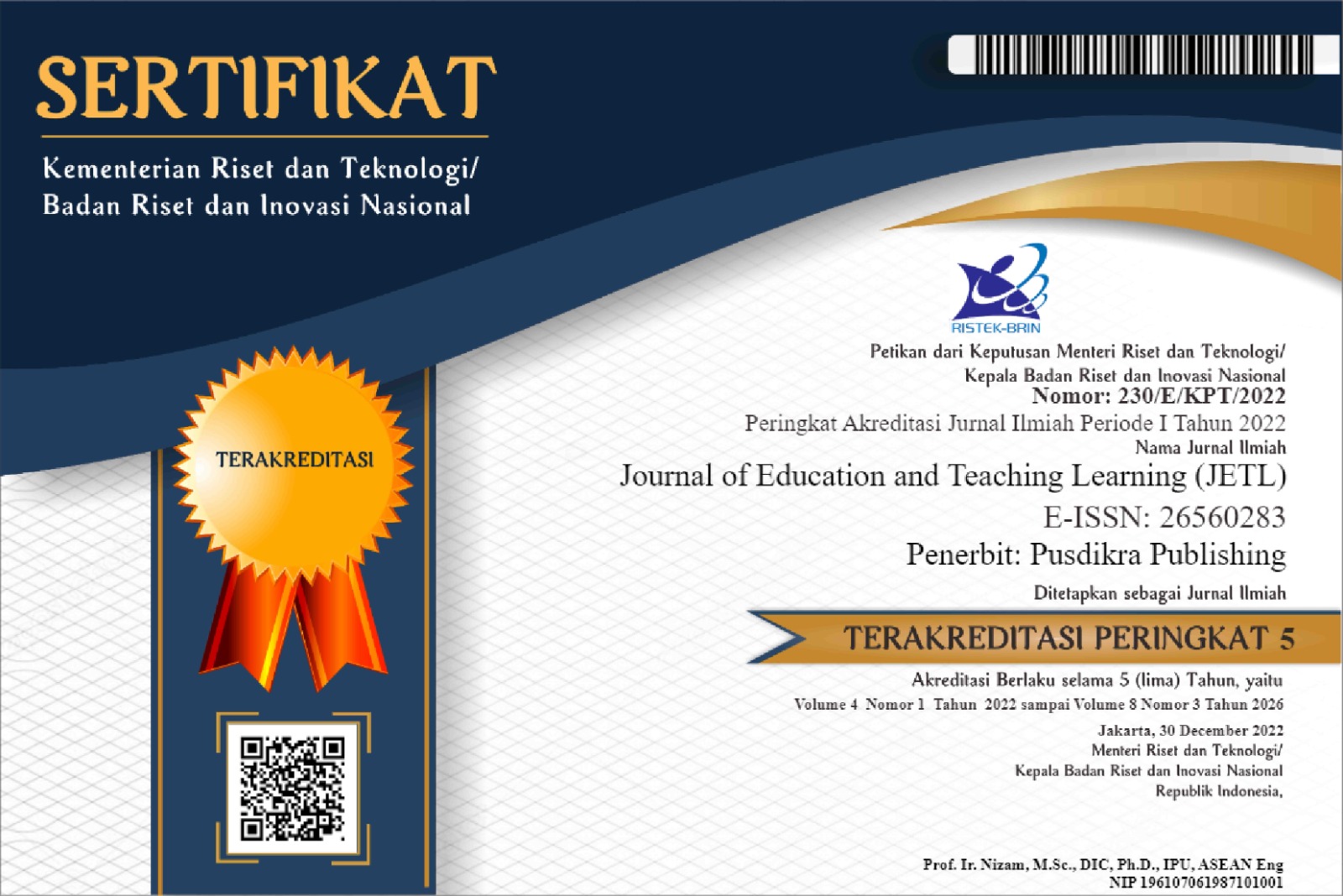Examining the Relationship Between Learning Motivation in Gamified English Learning and English Competence among Primary School Students
DOI:
https://doi.org/10.51178/jetl.v7i2.2412Keywords:
Learning Motivation, Gamified English Learning, English Competence, Primary StudentsAbstract
Gamified learning is widely recognized as an engaging instructional approach that can enhance students' motivation by incorporating elements of play, challenge, and reward. While motivation plays a crucial role in the learning process, it is important to examine whether it truly correlates with language competence, particularly in the context of English as a Foreign Language (EFL) learning. This study aimed to examine the relationship between students’ learning motivation in gamified English learning and their English competence. The participants were 30 fifth-grade students (aged 10–12) from a private primary school in Indonesia, selected through total sampling. A quantitative correlational method was used, employing a motivation questionnaire based on Keller’s ARCS model (Attention, Relevance, Confidence, Satisfaction), and English achievement tests. Data were analyzed using Pearson correlation analysis. The results revealed a very strong and statistically significant positive correlation (r = .996, p < .01) between learning motivation and English competence. These findings suggest that maintaining high levels of student motivation through gamified learning strategies can significantly support academic success in language learning. This study contributes to the growing evidence that motivation is not only an emotional factor but a critical predictor of academic achievement.
Downloads
Published
How to Cite
Issue
Section
License
Copyright (c) 2025 Eva Saptarina, Miftahulfadlik Dabamona, Lilik Yulianingsih

This work is licensed under a Creative Commons Attribution-ShareAlike 4.0 International License.




